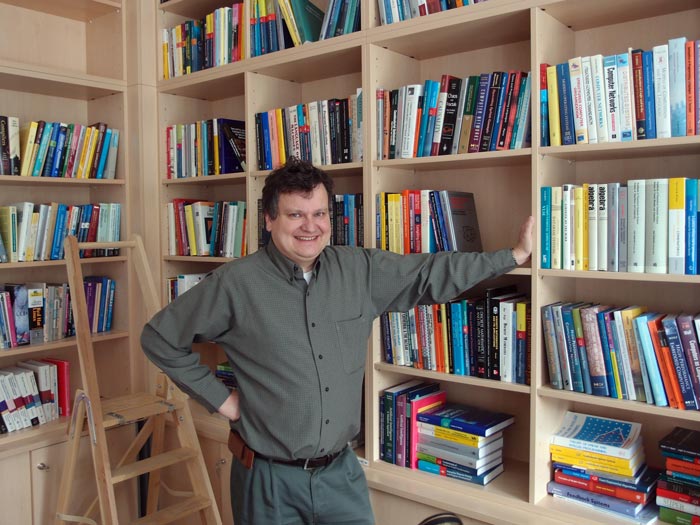July 20, 2015
Thomas Henzinger to receive Royal Society Award
Computer scientist is honored with Milner Award for outstanding achievement in computer science by a European researcher

The Royal Society announced on Monday, July 20, that IST Austria President Thomas Henzinger is to receive the Milner Award 2015 in recognition of his fundamental advances in the theory and practice of formal verification and synthesis of reactive, real-time, and hybrid computer systems. The award, supported by Microsoft Research, is given annually for outstanding achievement in computer science by a European researcher. The winner of the award receives a medal, a personal prize of £5,000, and is invited to deliver a public lecture on their research at the Society. The recipient is chosen by the Council of the Royal Society on the recommendation of the Milner Award Committee. This Committee consists of Fellows of the Royal Society (UK), members of the Académie des Sciences (France), and members of the Akademie der Wissenschaften Leopoldina (Germany). Past winners of the Milner Award are Gordon Plotkin (UK, 2012), Serge Abiteboul (France, 2013), and Berhard Schoelkopf (Germany, 2014).
Henzinger: “I am extremely honored and humbled to receive the Royal Society Milner Award, as Robin Milner is one of my scientific heroes and role models. For my entire scientific life I have tried to follow his example of designing formalisms that, by their very purity, bring a specific aspect of computation into clear view.”
Henzinger joined IST Austria in 2009. A native Austrian, the computer scientist spent most of his career abroad, teaching at Cornell University, at UC Berkeley, and at EPFL in Switzerland. His research focuses on modern systems theory, especially models, algorithms, and tools for the design and verification of reliable software, hardware, and embedded systems. Henzinger is an ISI highly cited researcher, a member of Academia Europaea, a member of the German Academy of Sciences Leopoldina, a member of the Austrian Academy of Sciences, a Fellow of the AAAS, a Fellow of the ACM, and a Fellow of the IEEE. He has received the Wittgenstein Award of the Austrian Science Fund and an ERC Advanced Investigator Grant.
The Royal Society—the national Academy of science in the UK—is a Fellowship of the world’s most eminent scientists and is the oldest scientific academy (founded 1660) in continuous existence. The Society’s fundamental purpose is to recognize, promote, and support excellence in science and to encourage the development and use of science for the benefit of humanity.



